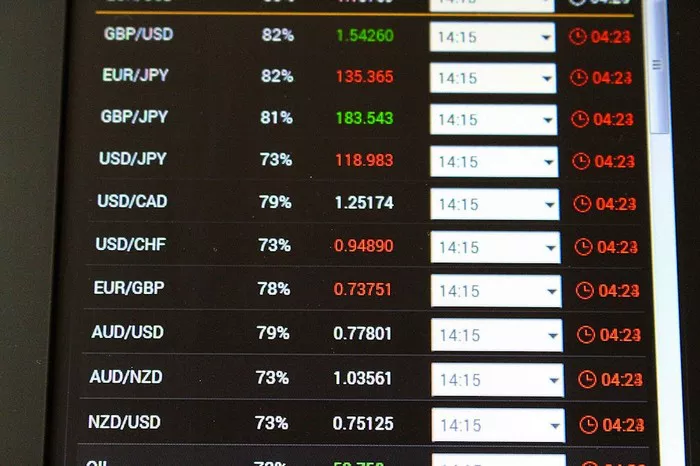Forex trading involves buying and selling currency pairs, with the goal of making a profit from price fluctuations. However, traders must consider transaction costs, one of which is the spread. The spread plays a crucial role in determining a trader’s profitability and affects trading strategies.
Understanding the impact of spreads is essential for both beginners and experienced traders. A higher spread can reduce potential profits, while a lower spread can provide cost-effective trading. To navigate the forex market successfully, traders need to know how spreads work and how they influence transactions.
Understanding Spreads in Forex Trading
Definition of a Spread
A spread is the difference between the bid price (selling price) and the ask price (buying price) of a currency pair. The bid price represents what buyers are willing to pay, while the ask price is what sellers demand. The gap between these two prices is the spread.
Why Do Spreads Exist?
Spreads exist because forex brokers facilitate transactions between buyers and sellers. The broker sets the spread to cover operational costs and make a profit. Market conditions and liquidity influence how wide or narrow a spread is.
Fixed vs. Variable Spreads
There are two main types of spreads in forex trading:
- Fixed Spreads remain constant, regardless of market conditions. These are ideal for traders who want predictable costs.
- Variable Spreads fluctuate depending on market volatility, liquidity, and trading activity. They can be narrow during stable conditions and widen during high volatility.
How Spreads Affect Forex Transactions
Impact on Entry and Exit Points
When a trader opens a position, they immediately incur the spread cost. If the spread is high, the market price must move significantly in the trader’s favor before reaching profitability. Lower spreads allow traders to enter and exit positions with minimal cost.
Influence on Trading Costs
Spreads directly affect the cost of each transaction. A high spread means a trader pays more per trade, reducing potential profits. Scalpers and day traders, who make frequent trades, are particularly affected by high spreads.
Effect on Different Trading Styles
Spreads impact various trading styles differently:
- Scalping: Traders who make multiple short-term trades prefer low spreads to keep costs minimal.
- Day Trading: Lower spreads help day traders avoid excessive transaction costs.
- Swing Trading: Since swing traders hold positions longer, spreads have less impact on their strategy.
- Position Trading: Long-term traders are least affected by spreads, as they focus on larger market movements.
Market Factors That Influence Spreads
Liquidity and Trading Volume
Currency pairs with high liquidity, such as EUR/USD, usually have lower spreads. Pairs with lower trading volume, like exotic currencies, tend to have higher spreads due to reduced market activity.
Market Volatility
During major news releases or economic events, spreads can widen due to increased uncertainty. Traders should be cautious when trading during volatile periods, as spreads may expand unexpectedly.
Time of Day and Market Sessions
Forex trading operates 24 hours a day, but spreads vary depending on market sessions. The London and New York sessions offer the tightest spreads due to high trading activity, while spreads widen during off-hours when liquidity is lower.
Broker Influence on Spreads
Role of the Broker
Brokers set the spread, either by offering fixed or variable pricing. Some brokers operate as market makers, setting their own spreads, while others use ECN (Electronic Communication Network) models, providing direct access to market prices with tight spreads but additional commissions.
Commission-Based vs. Spread-Based Brokers
Some brokers charge only a spread, while others offer tight spreads but apply a commission per trade. Traders should compare both options to find the most cost-effective choice.
Slippage and Spread Manipulation
During volatile periods, some brokers increase spreads or delay trade execution, leading to slippage. Choosing a reputable broker ensures fair pricing and minimizes unnecessary costs.
Minimizing the Impact of Spreads on Trading
Choosing the Right Broker
Selecting a broker with competitive spreads can reduce trading costs. Traders should compare spreads across different brokers and consider ECN accounts for better pricing.
Trading During High-Liquidity Hours
Trading during peak market hours, such as the London and New York sessions, ensures tighter spreads and reduced costs. Avoiding off-hours prevents unnecessary spread widening.
Using Limit Orders
Market orders execute trades at the current price, which may be affected by widened spreads. Limit orders allow traders to set specific entry and exit points, helping avoid unexpected spread fluctuations.
Monitoring Economic Events
Major news releases can cause spreads to widen dramatically. Traders should be aware of scheduled economic events and plan their trades accordingly to prevent excessive spread costs.
Conclusion
Spreads are a fundamental cost in forex trading that impact profitability. A narrow spread allows traders to enter and exit positions with minimal expense, while a wider spread increases trading costs. Factors such as liquidity, market volatility, and broker pricing all influence spread behavior.
Understanding spreads helps traders develop cost-effective strategies. By choosing the right broker, trading at optimal hours, and managing order execution, traders can minimize spread-related losses and maximize profitability in the forex market.
Related topics:
How to Analyze Trends in the Forex Market?
How to Avoid Overtrading in Forex Trading?


